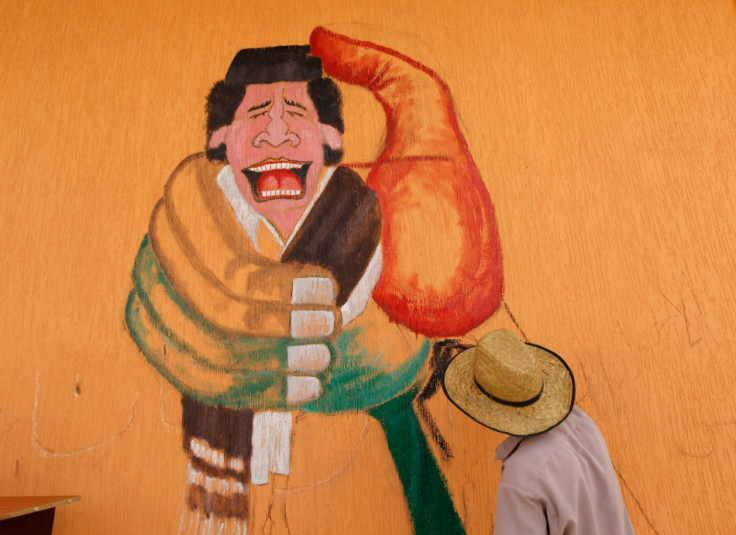Gaddafi Regime Declared “No Longer Legitimate”

More than 30 nations, including the United States, on Friday declared that Libyan leader Muammar Gaddafi's regime is no longer legitimate and formally recognized Libya's main opposition group as the legitimate government until a new interim authority is created.
Leaders say the decision will help keep up the military pressure on Gaddafi and potentially free up cash that the rebels fighting Libyan forces urgently need.
Even though the rebels, backed by NATO air force bombers, control much of the country's east and pockets in the west; Gaddafi controls the rest from his stronghold in Tripoli, the capital and as a result the conflict has reached stalemate.
In Friday's final statement following a meeting of the so-called Contact Group on Libya, the nations said: the "Gaddafi regime no longer has any legitimate authority in Libya," and Gaddafi and certain members of his family must go.
The group said it would deal with Libya's main opposition group, the National Transitional Council, or NTC, as "the legitimate governing authority in Libya" until an interim authority is in place.
The recognition of the Libyan opposition as the legitimate government is intended to provide an additional support for the rebels as well as give them a much needed credibility boost. Diplomatic recognition of the council means that the U.S. will now be able to fund the opposition with some of the $30 billion belonging to the Gaddafi-regime assets that are frozen in American banks.
"The United States views the Gaddafi regime as no longer having any legitimate authority in Libya," said U.S. Secretary of State Hillary Rodham Clinton. "And so I am announcing today that, until an interim authority is in place, the United States will recognize the TNC as the legitimate governing authority for Libya, and we will deal with it on that basis."
In addition to the U.S., the Contact Group on Libya includes members of NATO, the European Union and the Arab League.
Ahead of the meeting, a defiant spokesman for the Libyan government said its members were ready to die in defence of the country's oil against attacks by the rebels and NATO forces. "We will kill, we will die for oil," Moussa Ibrahim said. "Rebels, NATO, we don't care. We will defend our oil to the last drop of blood and we are going to use everything."
Despite announcing today the official recognition of the TNC, more legal work needs to be done by some countries, including the U.S., and at the United Nations, to fully legalize that step.
Speaking on the sidelines of Friday's meeting, Italian Foreign Minister Franco Frattini told reporters that "the entire Libyan Contact Group decided to recognize the NTC as the legitimate authority of Libya."
French Foreign Minister Alain Juppe said, "This means that we will be able to unfreeze a certain amount of money belonging to the Libyan state since it is the Transitional National Council which as of now will have this responsibility."
A road map to end the conflict demands that Gaddafi must resign and a cease-fire be declared with a goal for democratic elections, Juppe said. He stressed that military pressure will be kept until Gaddafi steps aside.
NATO, the U.S. and the Arab League have then decided to continue supporting the rebels movement despite concerns about whether the Transitional Council does represent the full spectrum of Libyan society.
Also after revealing that the rebel's fighters had been responsible for looting villages and attacking civilians, Human Rights Watch called on the Contact Group on Libya to press the opposition to ensure that civilians are protected in areas where rebels have assumed control.
The right groups said Friday it has documented abuses in four towns of Awaniya, Rayayinah, Zawiyat al-Bagul, and Qawalish, which were recently captured by rebels in the western mountains, including looting, arson, and beatings of some civilians who remained when government forces withdrew.
"Rebel abuses may pale in comparison with the atrocities by Libyan government forces, but they require immediate attention," said Sarah Leah Whitson, Middle East and North Africa director at Human Rights Watch. "Governments supporting the NATO campaign should push the opposition to protect civilians in areas where rebels have control, especially where some people may support the government."
© Copyright IBTimes 2025. All rights reserved.





















